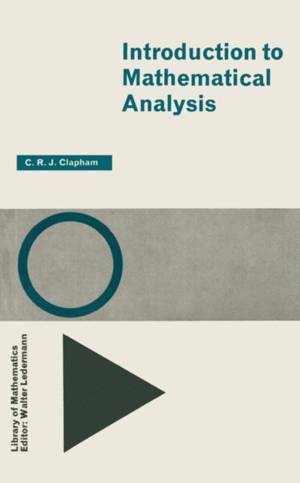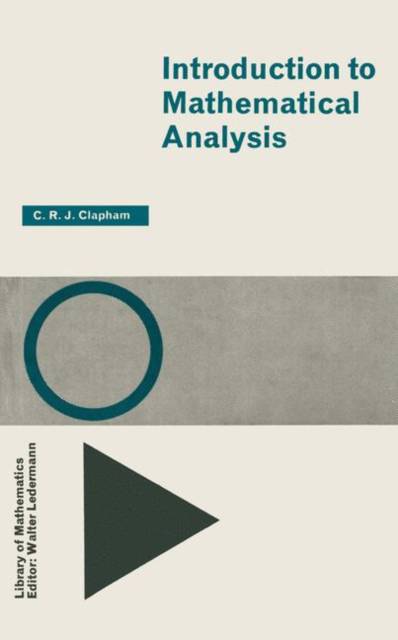
- Afhalen na 1 uur in een winkel met voorraad
- Gratis thuislevering in België vanaf € 30
- Ruim aanbod met 7 miljoen producten
- Afhalen na 1 uur in een winkel met voorraad
- Gratis thuislevering in België vanaf € 30
- Ruim aanbod met 7 miljoen producten
Zoeken
€ 106,95
+ 213 punten
Omschrijving
I have tried to provide an introduction, at an elementary level, to some of the important topics in real analysis, without avoiding reference to the central role which the completeness of the real numbers plays throughout. Many elementary textbooks are written on the assumption that an appeal to the complete- ness axiom is beyond their scope; my aim here has been to give an account of the development from axiomatic beginnings, without gaps, while keeping the treatment reasonably simple. Little previous knowledge is assumed, though it is likely that any reader will have had some experience of calculus. I hope that the book will give the non-specialist, who may have considerable facility in techniques, an appreciation of the foundations and rigorous framework of the mathematics that he uses in its applications; while, for the intending mathe- matician, it will be more of a beginner's book in preparation for more advanced study of analysis. I should finally like to record my thanks to Professor Ledermann for the suggestions and comments that he made after reading the first draft of the text.
Specificaties
Betrokkenen
- Auteur(s):
- Uitgeverij:
Inhoud
- Aantal bladzijden:
- 83
- Taal:
- Engels
- Reeks:
Eigenschappen
- Productcode (EAN):
- 9780710075291
- Verschijningsdatum:
- 31/05/1973
- Uitvoering:
- Paperback
- Formaat:
- Trade paperback (VS)
- Afmetingen:
- 133 mm x 203 mm
- Gewicht:
- 104 g

Alleen bij Standaard Boekhandel
+ 213 punten op je klantenkaart van Standaard Boekhandel
Beoordelingen
We publiceren alleen reviews die voldoen aan de voorwaarden voor reviews. Bekijk onze voorwaarden voor reviews.











